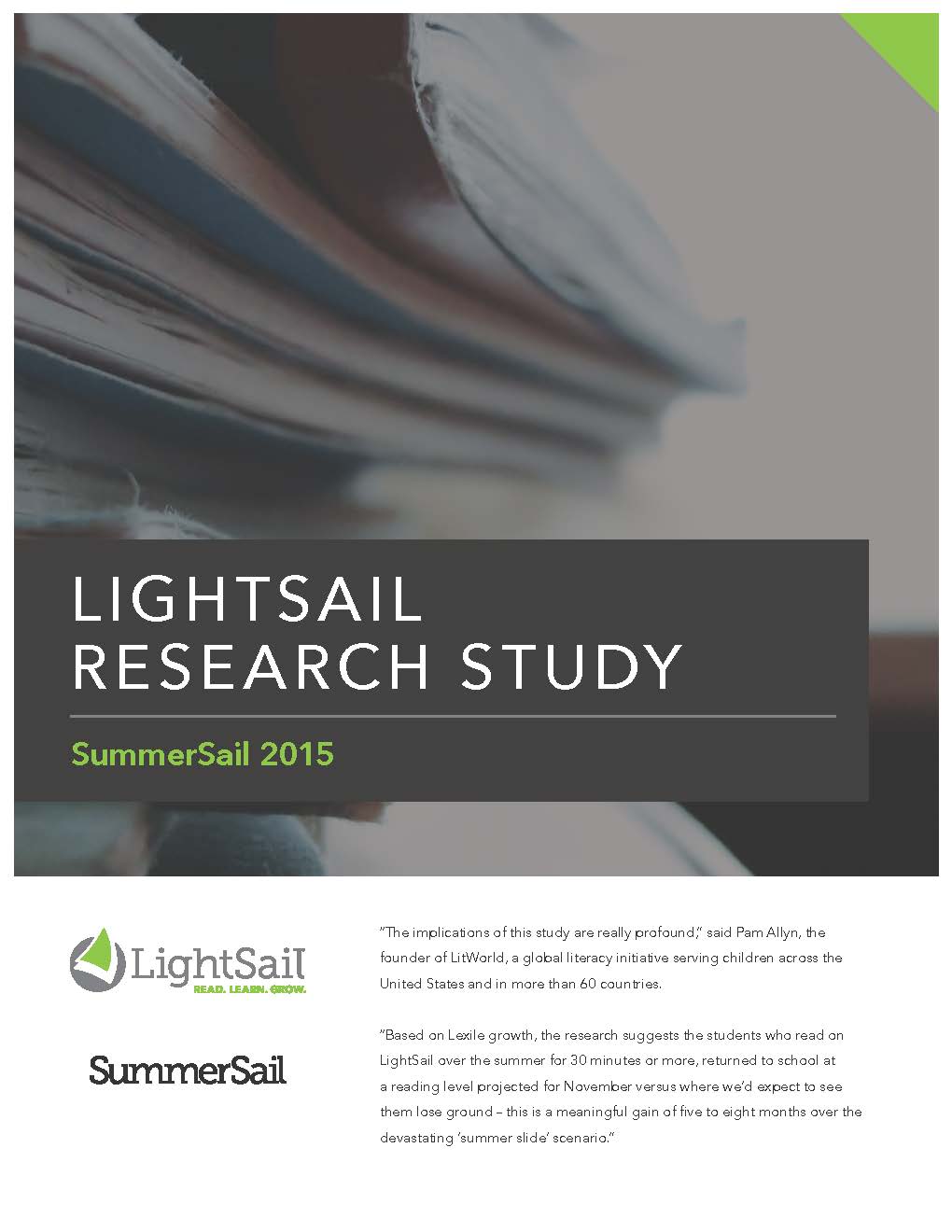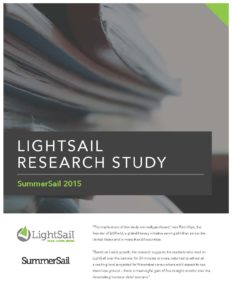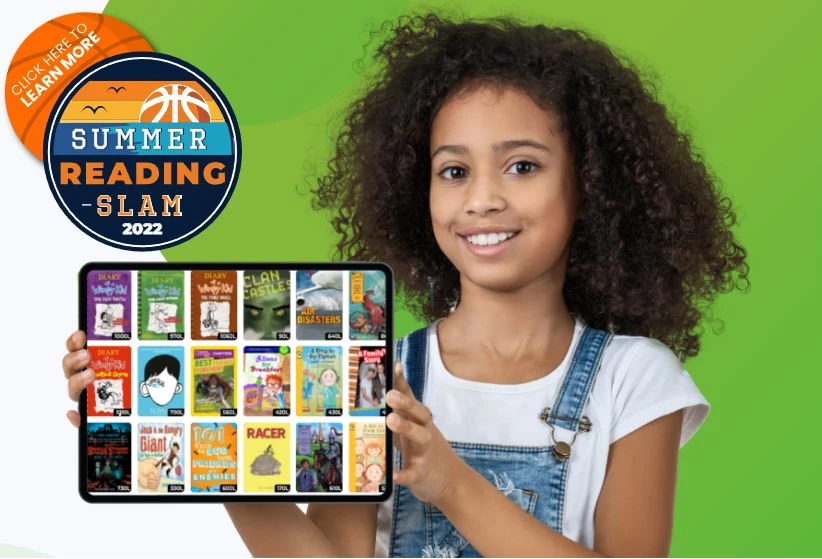

Independent academic research of New York City middle school students shows LightSail’s adaptive literacy platform helps sustain, grow reading performance in summer months
May 23, 2016
An independent study conducted by Johns Hopkins University shows that a program designed to reverse “summer slide” at scale showed real impact on student engagement and Lexile growth for students who read on the adaptive literacy platform LightSail for as little as 30 minutes per day.
According to an extensive meta-analysis of student reading data by socio-economic status (Cooper, 1996), students in low-income communities typically lose two to three months of learning during the summer, while their peers generally maintain literacy skills or grow during the same time period. Summer slide is cumulative and accounts for more than half of the achievement gap by the time students are in ninth grade.
That phenomenon is what inspired LightSail, a leading educational technology company that accelerates literacy development while fostering a love of reading, to create its SummerSail program and engage in third-party research to measure the program’s ability to assist with the problem at scale.
“The implications of this study are really profound,” said Pam Allyn, the founder of LitWorld, a global literacy initiative serving children across the United States and in more than 60 countries.
“Based on Lexile growth, the research suggests the students who read on LightSail over the summer for 30 minutes or more, returned to school at a reading level projected for November versus where we’d expect to see them lose ground – this is a meaningful gain of five to eight months over the devastating ‘summer slide’ scenario.”
THE SUMMERSAIL STUDY
A team of researchers studied 280 New York City Middle School students, 17 teachers, and five coaches from New York City’s Middle School Quality Initiative (MSQI) over seven weeks who participated in LightSail’s SummerSail program. They evaluated the technology’s impact on student learning, impact on reader identity, and perceptions of the technology. The study found that students who read on LightSail for even 15 minutes per day showed growth in their Lexile scores. The demographics of the student cohort studied are 91.7 percent minority, with 88.8 percent eligible for free/ reduced lunch and 12.7 percent are English Language Learners (ELL).
LightSail’s innovative reading experience uses algorithms that connect readers with “just-right” texts based largely upon MetaMetrics’ Lexile reading assessment that is used in classrooms across the country. The platform tracks student reading behavior and achievement outcomes while it uses personalized libraries and other persuasive learning technologies to engage and motivate students.
LightSail’s platform assessed the Lexile levels of students at the beginning of the program and throughout the seven weeks. For the students in the study who read more than 15 minutes per day, their post -program Lexile measures were significantly higher than their pre-program Lexile measures.
The study also segmented the readers into three groups that were organized by the amount of time spent reading. Lexile growth for all three mirrored the amount of time spent reading; those students who spent the most time reading (30 minutes or greater per day) had the highest gains in Lexile measures followed by those reading 15-30 minutes per day and those who read less than 15 minutes per day. The effect size for those students reading 40 minutes or greater each day during the SummerSail program was particularly strong.
(See the full study report here: http://edu.lightsailed.com/jhu_evaluation.)
THE STUDENT AND TEACHER EXPERIENCE
Teacher engagement is also notable. As teacher feedback on student annotations increased, so too did the amount of minutes students read on the platform. On the one hand, if teachers are providing more feedback and scoring more items, students might be more stimulated to increase reading time. On the other hand, if students are spending more time reading, they might be answering more questions and annotating more frequently, and, in turn, receiving more teacher feedback.
One teacher noted, “I really enjoyed the ability to respond to students’ thinking, as it created a very meaningful reading experience.” Another said, “The students were engaged so much more, and they enjoyed reading on the iPad. It was difficult to stop them when they were reading.”
As one middle school student participating in the study said, “LightSail was easy because it had two things I love, technology and reading.”
“LightSail has a firm commitment to efficacy and using research to understand the effects on learning throughout the year, whether or not school is in session. I’m thrilled about what the results of this study suggest – certainly about the technology’s impact, but also about how reading just 30 minutes per day can stem summer slide, it can create very real gains for students,” said company CEO Gideon Stein.
ABOUT LIGHTSAIL
LightSail is the adaptive reading platform that helps students, classrooms, and school districts exceed their literacy goals.
LightSail students get access to personalized libraries filled with thousands of engaging, just-right texts to choose from. Our award-winning solution embeds in-text assessments that motivate students to increase the volume of their reading along with the difficulty of the texts they choose.
LightSail teachers get real-time access to meaningful data about student reading behavior, comprehension, and growth so they can provide the necessary guidance to enhance learning and encourage a love of reading.
Posted on 5.May.16 in News




